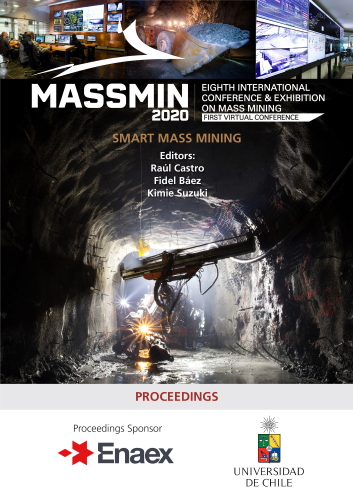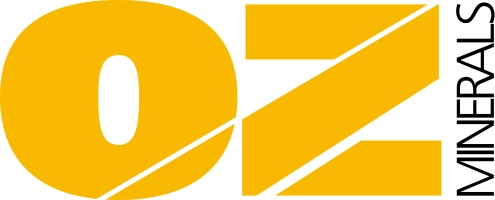Deep Ore Zone mine wet ore mining empirical learnings, mining process evolution and development pathway

|
Authors: Edgar, I; Prasetyo, R; Wilkinson, M |
This paper is hosted with the kind permission of Lulea University of Technology, International Conference & Exhibition on Mass Mining, 2024.
DOI https://doi.org/10.36487/ACG_repo/2063_24
Cite As:
Edgar, I, Prasetyo, R & Wilkinson, M 2020, 'Deep Ore Zone mine wet ore mining empirical learnings, mining process evolution and development pathway', in R Castro, F Báez & K Suzuki (eds), MassMin 2020: Proceedings of the Eighth International Conference & Exhibition on Mass Mining, University of Chile, Santiago, pp. 385-393, https://doi.org/10.36487/ACG_repo/2063_24
Abstract:
The Deep Ore Zone (DOZ) panel cave mine has experienced a steady increase in the prevalence of wet ore within the mine. The mine has a unique data set on this challenge and has established sufficient empirical relationships to manage the hazards associated with it. This includes an understanding of not only the probability of wet ore rushes but also the potential severity of these rushes. In parallel, the mine has progressed towards the goal of establishing a remote cave mining operation. To date, the mine has converted 100% of its Load Haul Dump (LHD) operations to remote; has updated 30% of the active chutes to remote operation; is largely complete converting its water cannons to remote operation and is in the process of finalizing the work plan to convert the mobile rock breakers and other support equipment to remote operation. All remote operations will be housed in a single location on the surface. Although driven by the safety requirements of managing wet muck, this change points to the future of mining as a continuous and remote operation.
References:
Call & Nicholas Inc. 1998, ‘IOZ Wet Muck Study’.
Casten, T, Rachmad, L, Arkadius, T, Osborne, K & Johnson, M 2008, ‘P.T. Freeport Indonesia’s Deep Ore Zone Mine – expanding to 80,000 tonnes per day’.
Learning and Organisational Development 2019, ‘Wet Muck Awareness Training’, Power Point Presentation.
Prasetyo, R 2018, ‘Massive Spill in 1A & Resulting Actions’, Power Point Presentation.
© Copyright 2026, Australian Centre for Geomechanics (ACG), The University of Western Australia. All rights reserved.
View copyright/legal information
Please direct any queries or error reports to repository-acg@uwa.edu.au
View copyright/legal information
Please direct any queries or error reports to repository-acg@uwa.edu.au
